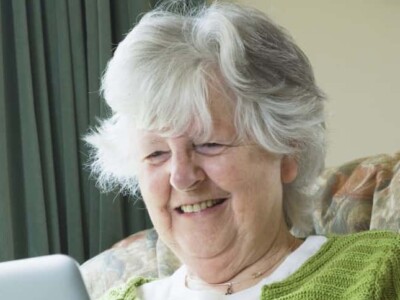(Reuters Health) – Telehealth visits by lay counselors may improve depression in older homebound adults, though not as effectively as sessions involving licensed clinicians, a new study suggests.
In a randomized controlled trial, patient depressive symptoms improved significantly with both lay counselor sessions and clinician tele-visits compared to controls, according to the report published in JAMA Network Open.
“Lay counselors can do a really good job in serving underserved population groups, especially older homebound patients,” said the study’s lead author, Namkee Choi, a professor at the Steve Hicks School of Social Work at The University of Texas at Austin. “This group of people is not well served by existing mental health services because even with telemedicine many do not have access to psychiatry services because their incomes are very low.”
To take a closer look at how effective lay counselors might be in helping older homebound patients with depression, the researchers recruited 277 patients whose average age was 67.5. Most participants (193, or 69.7%) were women, while about a third (83, or 30.0%) were Black and nearly a third (81, or 29.2%) were Hispanic. Most (255, or 92.1%) had incomes of $35,000 or less.
Of the 277 participants, 90 were randomly assigned to receive video conferenced behavioral activation (tele-BA) therapy, 93 were randomized to video conferenced problem solving (tele-PST), and 94 were assigned to an attention control (AC) group that received telephone support calls. The participants in the active arms of the study received a one-hour telehealth session per week for five weeks, while the control group received a 30-45 minute phone call once a week for five weeks.
The lay counselors had no experience with depression counseling prior to receiving 50 hours of training before the study began. The training consisted of education on the basics of geriatric depression, interviewing skills, how to provide tele-BA and how to deal with potential suicide risks, Choi said.
The primary outcome for the two active groups was a reduction of 50% or more in Hamilton Depression Rating Scores.
All participants had been depressed for at least two years, Choi noted. “Some had suffered persistent depression for 20 years.”
Behavior activation therapy “is based on the theory that depression is a reflection of behaviors,” Choi explained. “So, if you do depressive behaviors, like staying in bed all day long, not interacting with people and isolating yourself you will experience depressive symptoms.”
As an example of behavior activation therapy, Choi points to an older person who is homebound and not moving around. “So, we’d ask ‘Can you take a chair and go out and watch the birds in your back yard?'” she said. “Even a little thing that involves some exercise and going outside can make a difference.”
At the 12-week follow-up, tele-PST participants had the highest response rate, 51.8%, followed by tele-BA participants at 32.1%, as compared to 12% among the AC participants. And those changes were lasting, Choi said.
The new study is “timely,” said Dr. Susan Lehmann, an associate professor and clinical director in the division of geriatric psychiatry and neuropsychiatry at the Johns Hopkins University School of Medicine in Baltimore.
“It is interesting that this telehealth study was performed before the onset of the current COVID-19 pandemic,” Lehmann said in an email. “This is particularly timely as now that we are in the midst of the pandemic, most outpatient mental health care is being delivered through telemedicine.”
Mental health clinicians are finding that mental telehealth visits can be as effective as in person visits for older adults, Lehmann said. “Studies like this one lend support for the vital role of mental telehealth as part of long-term healthcare plans, even after the pandemic is gone, especially for vulnerable older adults,” she added.
“The study authors also make the point that using trained lay counselors can be one way to extend mental health care to older adults with depressive symptoms,” Lehmann said. “They correctly note that the geriatric mental health workforce is insufficient to meet the growing mental health needs of aging adults. (This study) lends support to the recognition that trained lay counselors can play a meaningful and useful role in the treatment of depression among older adults in the community.”


